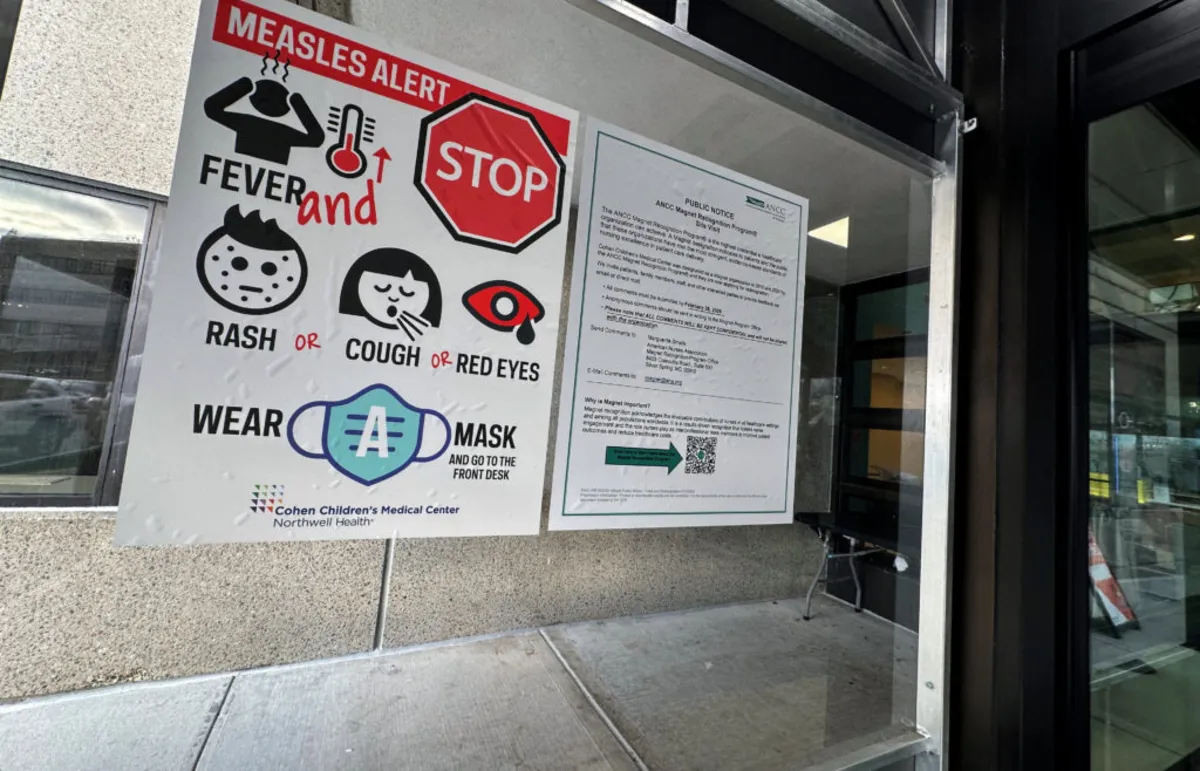
The measles outbreak that originated in Texas in late January 2025 has continued to escalate. As of March 27, 2025, the number of confirmed cases across the United States has reached a staggering 483, surpassing the total number recorded in 2024. Approximately 93 percent of these cases are linked to the ongoing outbreak, which has expanded to include Texas, New Mexico, and Oklahoma.
Health authorities face criticism for their lack of clarity, leaving many individuals uncertain about whether they should seek revaccination. In a recent Q&A with The Conversation U.S., Dr. Daniel Pastula, a neurologist and medical epidemiologist from the University of Colorado Anschutz Medical Campus, provided valuable insights on what actions individuals should consider taking.
The measles vaccine, which was first introduced in the U.S. in 1963, contains a live but significantly weakened strain of the measles virus. This modified strain is incapable of causing measles but is similar enough to the wild-type virus to effectively train the immune system to recognize it. Generally, individuals who received the live measles vaccine as children will not need an additional shot; however, here are essential points to consider:
Individuals born before 1957 are presumed to have lifelong immunity due to the highly contagious nature of measles—most people contracted the virus before the age of 15. Unless there are exceptional circumstances, they likely do not need a vaccine now. Most people born after 1957 would have received the measles vaccine during childhood, which provides them with lifelong protection. Public health experts do not recommend that this group receive a second dose, with some notable exceptions.
Two specific situations may necessitate a reassessment of vaccination status:
Vaccination between 1963 and 1967: During this period, one of the measles vaccines contained only viral proteins rather than a live, weakened virus. Research indicated that this inactivated vaccine was less effective and did not confer long-term immunity. If you were vaccinated during these years and are unsure whether you received the live vaccine, it is advisable to get a dose of the live vaccine. High-risk groups: If you belong to high-risk categories—such as healthcare providers, international travelers, or college students—health experts generally recommend receiving a second dose if you have only had one. For most adults without these risk factors, a second dose of the live measles vaccine is not routinely recommended.For personalized advice, individuals should consult their healthcare providers, particularly if they have concerns about their vaccination status. In most cases, there is no recommendation for a third dose of the measles vaccine.
Wondering whether you have been vaccinated? You might be able to find out! Many states maintain vaccine records, allowing you to check your immunization history or that of your children. Additionally, your high school or college may still have your records, as could your pediatrician's office.
For most individuals, the answer is likely no. A titer test measures the level of antibodies in your blood to determine immunity to measles. However, the level of antibodies does not always accurately reflect your immune status. Antibodies are just one component of the immune system's defense against infections. Low antibody levels do not necessarily imply diminished immunity, as other immune cells also play crucial roles in protection.
For instance, memory B cells may not currently produce antibodies but can quickly respond to the virus if encountered again. Therefore, antibody tests should be reserved for specific cases, in consultation with a healthcare professional. For example, healthcare providers born before 1957 may wish to verify their immunity status through an antibody test.
Natural immunity, acquired after contracting measles, is indeed effective. However, the risks associated with natural infection are significant. Before the vaccine's introduction in 1963, measles led to nearly 50,000 hospitalizations and around 500 deaths annually in the U.S., predominantly among children. Furthermore, it caused over 1,000 cases of severe brain inflammation each year, along with long-term complications like permanent hearing loss.
The primary goal of vaccines is to establish immunity without the dangers posed by severe infections. Vaccine-induced immunity is comparable to natural immunity but is much safer. One dose of the measles vaccine is approximately 93 percent effective, while two doses increase effectiveness to 97 percent. Breakthrough cases are typically milder than full-blown measles infections.
No, the measles vaccine cannot cause measles. It contains a significantly weakened strain of the virus with limited ability to infect cells. Recent claims suggesting that the outbreak in Texas was caused by the vaccine lack credible evidence. Investigations by the CDC and the Texas Department of State Health Services have identified the outbreak virus as a wild-type strain, specifically genotype D8, rather than the weakened vaccine strain, genotype A.
It's reasonable to question the risks associated with the measles vaccine. As a live, weakened virus vaccine, it may cause mild, measles-like symptoms—such as a slight fever or rash—in some individuals. However, these symptoms typically resolve within a few days, and most people do not experience them.
In extremely rare cases, more significant reactions may occur. It's essential to recognize that all medical interventions carry some degree of risk, including medications and over-the-counter supplements. Nevertheless, the overwhelming evidence suggests that the benefits of vaccination far outweigh the risks associated with severe outcomes from measles.
Vaccination not only protects you and your loved ones but also safeguards vulnerable members of the community, such as infants, cancer patients, and pregnant women, who cannot be vaccinated themselves.